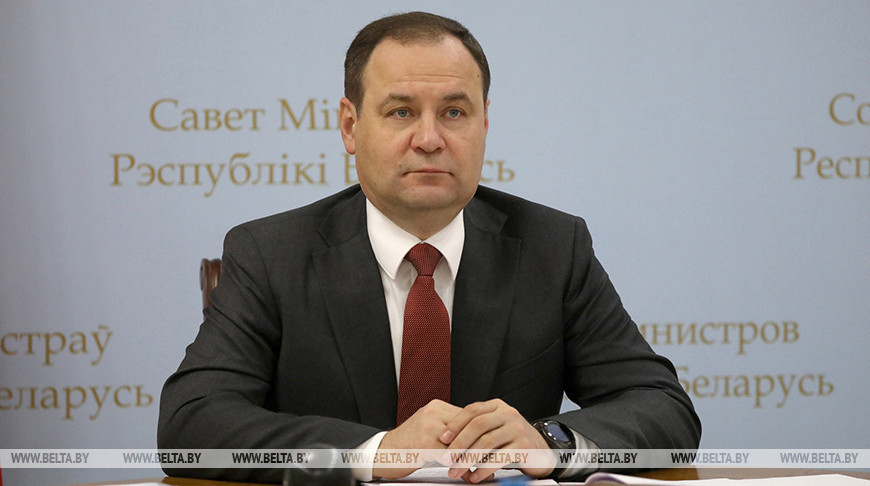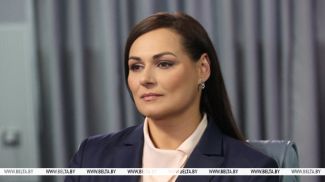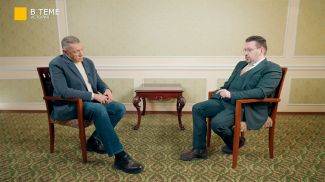
MOSCOW, 13 December (BelTA) - The Eurasian Economic Union has yield real results helping to tackle external challenges, but it has not yet achieved the integration breakthrough we expected, Belarusian Prime Minister Roman Golovchenko said at the meeting of the Eurasian Intergovernmental Council in Moscow on 13 December, BelTA has learned.
"Integration works really well, allowing us to properly tackle external challenges, ensure additional sustainability of economies, develop new competencies in industry, agriculture, high technologies, and others. However, despite all the achievements and successes, it should be admitted that we have not yet achieved the breakthrough that we expected when signing the EAEU Treaty in 2014," the prime minister said.
He stated that the EAEU has not addressed a number of issues, including the polarity of views on the harmonization of legislation in financial markets. "In accordance with the EAEU Treaty a supranational body on financial market regulation was to start operating in Almaty next year," Roman Golovchenko pointed out.
"Digitalization is still a difficult process for us: the world is already thinking about the practical application of artificial intelligence, while we have not yet addressed the problems of electronic digital signature in the union. We need to discuss the climate agenda more specifically. Following the trend towards decarbonization and the development of a low-carbon economy poses high risks for mutual trade. We need to be ready to overcome them," he said.
According to Roman Golovchenko, there is a need to analyze the implementation of the strategic guidelines of Eurasian economic integration until 2025. "We have not yet completed some of the tasks set by the heads of state. We need to move faster in order to catch up with them. It is important for the new strategic document - a roadmap to achieve the goals outlined in the declaration on further development of economic processes within the EAEU until 2030 and until 2030 and for the period until 2045," the prime minister stressed.
"Integration works really well, allowing us to properly tackle external challenges, ensure additional sustainability of economies, develop new competencies in industry, agriculture, high technologies, and others. However, despite all the achievements and successes, it should be admitted that we have not yet achieved the breakthrough that we expected when signing the EAEU Treaty in 2014," the prime minister said.
He stated that the EAEU has not addressed a number of issues, including the polarity of views on the harmonization of legislation in financial markets. "In accordance with the EAEU Treaty a supranational body on financial market regulation was to start operating in Almaty next year," Roman Golovchenko pointed out.
"Digitalization is still a difficult process for us: the world is already thinking about the practical application of artificial intelligence, while we have not yet addressed the problems of electronic digital signature in the union. We need to discuss the climate agenda more specifically. Following the trend towards decarbonization and the development of a low-carbon economy poses high risks for mutual trade. We need to be ready to overcome them," he said.
According to Roman Golovchenko, there is a need to analyze the implementation of the strategic guidelines of Eurasian economic integration until 2025. "We have not yet completed some of the tasks set by the heads of state. We need to move faster in order to catch up with them. It is important for the new strategic document - a roadmap to achieve the goals outlined in the declaration on further development of economic processes within the EAEU until 2030 and until 2030 and for the period until 2045," the prime minister stressed.













